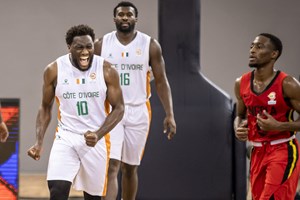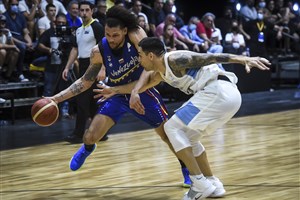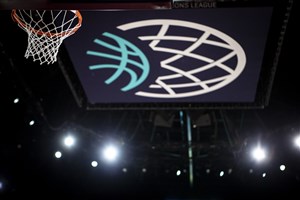
The Yugoslavia breakthrough at the 1970 FIBA Basketball World Cup
MIES (Switzerland) - In the history of the FIBA Basketball World Cup, what was most noteworthy about the sixth edition was that it was staged outside of South America, and won for the first time by Yugoslavia.
As one of FIBA's 90 iconic moments, it's time to reflect on the famous tournament held in the legendary Tivoli Hall, which opened in 1965 and was the stage for Yugoslavia's greatest moment.
Yugoslavia went into the event after runners-up finishes at the previous two World Cups (FIBA's flagship event was called the World Championship at the time) , which had been won by Brazil and the Soviet Union in Rio de Janeiro and Montevideo, respectively.
The MVP of the 1967 World Cup had been none other than Slovenia's finest, Ivo Daneu, so expectations soared as he and Yugoslavia this time tried to make full use of home-court advantage.
Even so, Yugoslavia didn't know which Daneu would show up at the event because he had had a rough year with injuries.
"I damaged my thigh muscle in January and had a 4cm tear," he recalled in the documentary, the History of the FIBA Basketball World Cup.
"But they said that if I didn't play, people would turn against us. So I was in the team as sort of a connection between the coach, players and fans."
What made Daneu's performances for Yugoslavia and throughout his career was that he was blind in one eye.
The mere presence of the captain was indeed crucial for the reasons he'd understood. It also helped Yugoslavia that they had other sublime talents like the legendary Kresimir Cosic, pictured below.
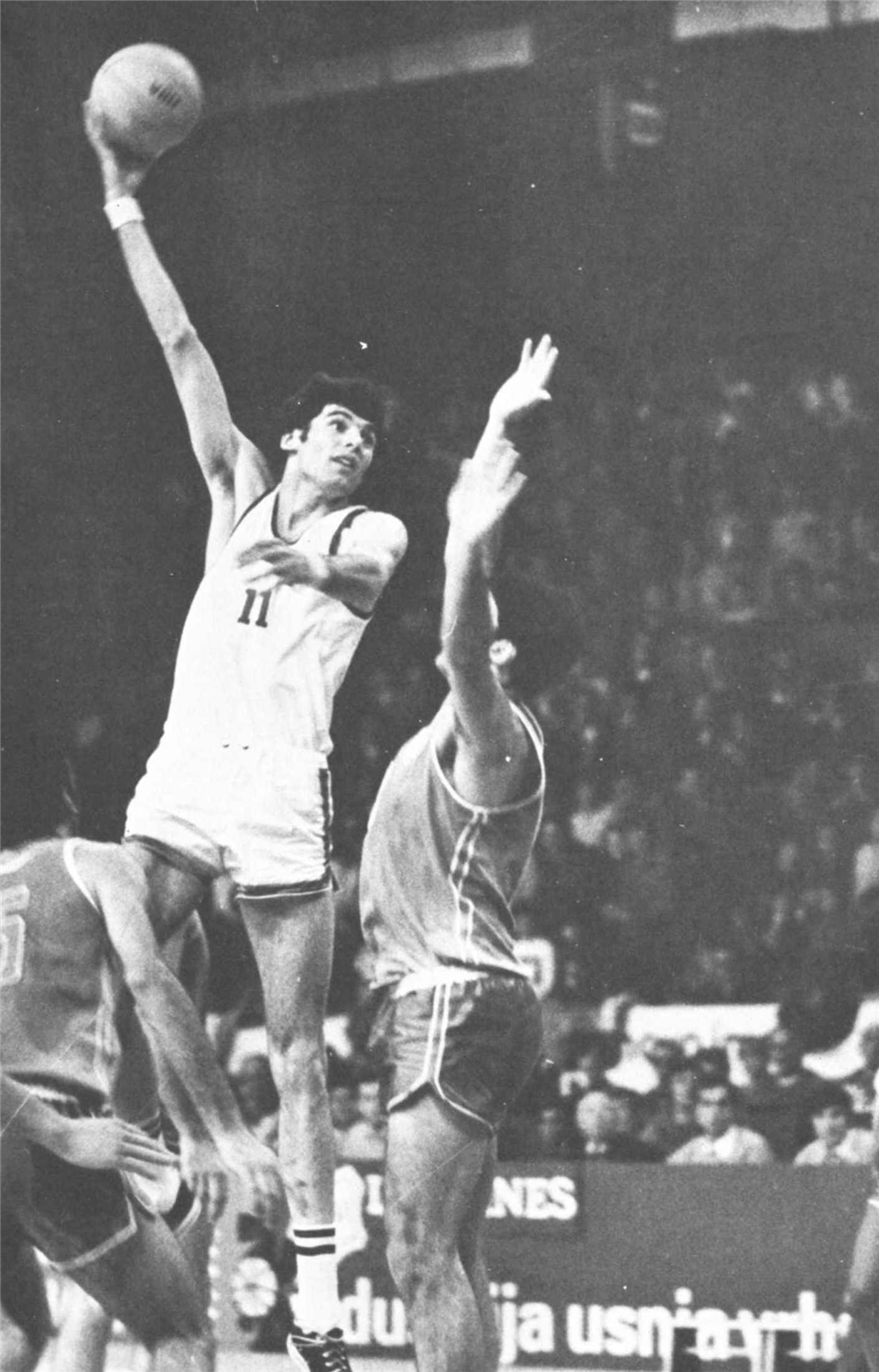 Yugoslavia rode their home-court advantage and an inspirational Kresimic Cosic to the title
Yugoslavia rode their home-court advantage and an inspirational Kresimic Cosic to the title
The tournament was a full-on basketball extravaganza in Yugoslavia.
Sarajevo, Split, Karlovac, Skopje and in the Final Round, Ljubljana, staged games.
As hosts, Yugoslavia had the luxury of skipping the First Round which consisted of 12 teams that were allocated to three groups.
To advance to Final Round and join Yugoslavia, countries needed to finish among the top two.
 Ranko Zeravica became an instant legend after coaching Yugoslavia to their first title
Ranko Zeravica became an instant legend after coaching Yugoslavia to their first title
From Group A, the USA (3-0) and Czechoslovakia (2-1) finished ahead of Cuba (1-2) and Australia (0-3), while in Group B, Brazil (3-0) and Italy (2-1) advanced to the Final Round ahead of South Korea (1-2) and Canada (0-3).
That Italian team had a 20-year-old Dino Meneghin making his World Cup bow. Meneghin would go on to play a decade and a half for Italy and become one of the country's most beloved sportsman.
In Group C, the defending champions Soviet Union (3-0), whose talisman was now Sergei Belov, and Uruguay (2-1) were first and second ahead of Panama (1-2) and United Arab Republic (0-3).
In the Final Round, the Soviets found the going tough early. They slipped up against Brazil, 66-64, in their opener, before falling to the United States in 75-72, in their fourth game.
Yugoslavia, meanwhile, had to survive a tough fight against Italy in their first game, 66-63.
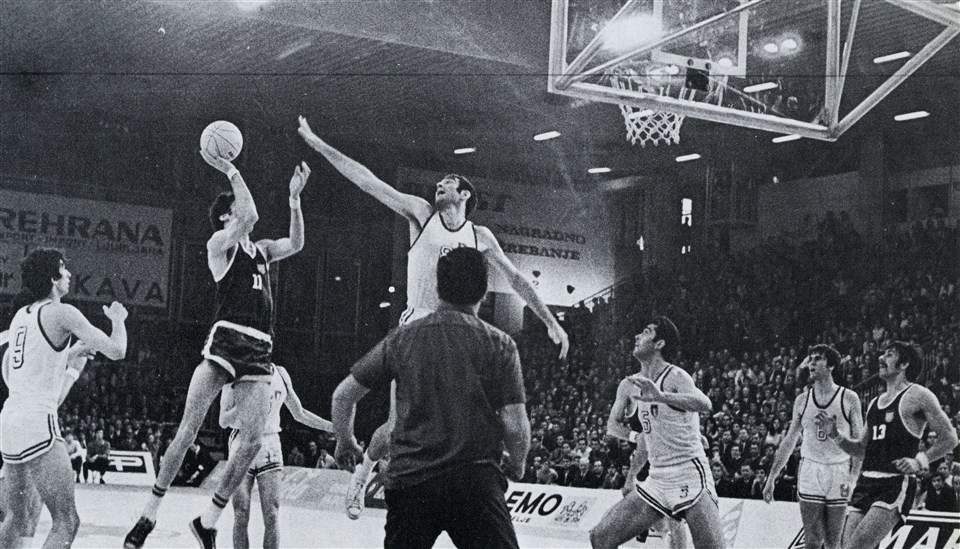 Yugoslavia survived in a thriller against Italy to get their campaign off on a winning note
Yugoslavia survived in a thriller against Italy to get their campaign off on a winning note
Yugoslavia then rolled to a very important 80-55 victory over Brazil, one of the powerhouses of international basketball and a team that had reached the podium at the previous four World Cups.
Another major hurdle that had to be cleared by Yugoslavia was the USA. The hosts went into the showdown with four wins in as many games.
The USA were formidable, however. They had walloped Czechoslovakia and Uruguay before claiming their three-point win over the Soviet Union.
If there was a team that looked like it could be headed for the top of the podium, it was the Americans.
"It turned out that the game against the USA would be the decider," Daneu said. "In sports, you need a little bit of luck. And at that time, we felt like we'd won the lottery."
Yugoslavia prevailed, 70-63.
"It's interesting that the fans came up with a chant. 'Keep your moon, we'll take the gold.'" Because the year before, the Americans had landed on the moon."
As the Soviets already had two losses, Yugoslavia were guaranteed the title.
What was up for grabs heading into the third day was second and third place. Brazil knocked off the USA, 69-65, and the Soviet Union thumped Yugoslavia, 87-72, to leave the Brazilians as the runners-up and the Soviets also on the podium.
 Brazil defeated the USA and came in second, a loss that contributed to the Americans' fifth-place finish
Brazil defeated the USA and came in second, a loss that contributed to the Americans' fifth-place finish
Yugoslavia celebrated their finest hour in international basketball, although a lot more success was to follow. The country would produce many of the sport's legendary figures, both coaches and players.
"We were the generation that paved the way for the growth of Yugoslavian basketball," Daneu said.
"We played well. The hall was full, they were thrilled. It's interesting that the fans came up with a chant. 'Keep your moon, we'll take the gold.'" Because the year before, the Americans had landed on the moon.
"The euphoria, the joy, the excitement."
The All-Star Five at that World Cup was a special one, too, because joining Belov were fellow Soviet star Paulauskas, Yugoslavia's Cosic, Ubiratan Pereira Maciel of Brazil and Kenny Washington of USA.
FIBA
